We have a number of committees and boards that support and provide advice across our organisation.
Committees that provide advice to the Council:
- Audit and Risk Committee
- Collections Advisory Committee
- Foundation Board
- Membership Standing Committee
Committees that provide advice to the Chief Executive Officer:
- Consultative Committee
- Education Advisory Committee
- Health and Safety Committee
- Indigenous Caucus
- Languages Advisory Committee
- Native Title Research Advisory Committee
- Publishing Advisory Committee
- Research Advisory Committee
- Research Ethics Committee
-
Audit and Risk Committee
The Australian Institute of Aboriginal and Torres Strait Islander Studies (AIATSIS) is governed by the AIATSIS Council. The Audit and Risk Committee (ARC) is integral to good governance and a valuable source of independent advice for the accountable authority of a Commonwealth entity.
-
Education Advisory Committee
The AIATSIS Education Advisory Committee (EAC) provides expert advice and guidance to the AIATSIS CEO on the implementation of the AIATSIS Education Strategy.
The Committee comprises a diverse range of experts, including:
- Educators, education practitioners and researchers with knowledge and experience in Aboriginal and Torres Strait Islander education.
- Aboriginal and Torres Strait Islander education authorities, peak bodies and advocacy organisations.
- Representatives from the National Cultural Institute and GLAM (Galleries, Libraries, Archives and Museums) sectors.
Members are appointed via an Expression of Interest Process held every two years.
-
Foundation Board
The Foundation Board reports to and makes recommendations to the AIATSIS Council and AIATSIS Executive.
Purpose
The purpose of the AIATSIS Foundation Board is to raise funds, secure gifts and bequests in support of the AIATSIS Vision.
Functions
The functions of the AIATSIS Foundation Board are to:
-
Actively seek philanthropic support through cash donations, gifts and bequests
-
Promote AIATSIS’ work to encourage philanthropic giving to AIATSIS
-
Guide AIATSIS Fundraising activity
-
Connect AIATSIS with strategic partners, including communities, philanthropists, industry, social enterprises and individual donors.
-
Provide advice to the AIATSIS Council and Executive on Foundation matters.
The AIATSIS Foundation Board consists of a minimum of eight (8) and a maximum of twelve (12) members appointed by the AIATSIS Council.
Current Foundation Board members:
-
Mr Geoffrey Winters (Chair)
-
Mr Len Hill (Member, AIATSIS CEO, ex-officio)
-
Ms Sue Kee (Member)
-
Ms Gabrielle Trainor AO (Member)
-
Mr Morry Schwarz AM (Member)
-
Professor Lynette Riley (AIATSIS Council Member)
-
-
Languages Advisory Committee
The Languages Advisory Committee provides advice to the AIATSIS CEO on matters relating to Aboriginal and Torres Strait Islander languages.
Language Advisory Committee members:
- Chair: AIATSIS Chief Executive Officer (Ex-Officio)
- Executive Director, AIATSIS Research and Education Group (Ex-Officio)
- Director, AIATSIS Centre for Australian Languages (Ex-Officio)
- Ms Noeleen Lumby (Macquarie University)
- Ms Denise Smith-Ali (Noongar Boodjar Language Cultural Aboriginal Corporation)
- Mr Desmond Crump (University of Queensland)
- Mr Clayton Cruse (South Australian Department of Education)
- Ms Lorraine Injie (Wangka Maya Pilbara Aboriginal Language Centre)
- Dr Vicki Couzens (Royal Melbourne Institute of Technology [RMIT] University)
- Professor Jane Simpson (Australian National University)
-
Native Title Research Advisory Committee
The AIATSIS Native Title Research Advisory Committee (NTRAC) was established by AIATSIS to provide advice to the Chief Executive Officer (CEO) on the research program of the Indigenous Country and Governance (ICG) Unit.
The committee comprises:
- No fewer than 5 and no greater than 12 members;
- Comprising majority Indigenous members and should seek to reflect a gender and age balance as well as a balance between institutional and non-institutional membership;
- The AIATSIS CEO (also Committee chairperson) or their nominated delegate;
- A representative of the primary funding body of the Indigenous Country and Governance (ICG) Unit, nominated by the Commonwealth Department responsible for Indigenous Affairs and approved by the CEO (normally the First Assistant Secretary with responsibility for native title organisations);
- The AIATSIS Executive Director of Research and Education;
- At least two native title experts, who are in current practice, connected with native title processes and reflect the disciplinary diversity involved in native title practice.
- No fewer than 5 and no greater than 12 members;
-
Publishing Advisory Committee
The Publishing Advisory Committee members offer a range of skills and academic credentials including Indigenous community and language knowledge, research, writing and publishing expertise. Along with staff in the Aboriginal Studies Press team, the committee considers manuscripts submitted for publication. The committee members make recommendations to the CEO about publication.
Publishing Advisory Committee members:
- Professor Odette Best
- Dr Leah Lui-Chivizhe
- Emeritus Professor Simon Forrest
- Associate Professor Jeanine Leane
-
Research Ethics Committee
The AIATSIS Research Ethics Committee is responsible for reviewing projects involving Aboriginal and Torres Strait Islander research to ensure the appropriate ethical standards have been met. The Committee welcomes applications from external organisations (fees apply). All AIATSIS research projects are subject to review by the Committee.
The Committee is registered with the NHMRC and reviews projects in accordance with the National Statement and the AIATSIS Code of Ethics for Aboriginal and Torres Islander Research.
We are currently recruiting members to the AIATSIS Research Ethics Committee (REC).
Research Ethics Committee members
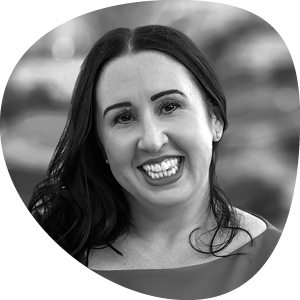
Associate Professor Mandy Downing (Co-Chairperson)
Associate Professor Mandy Downing has maternal lineage to the Ngarluma and Yindjibarndi people through the Lockyer family of the Pilbara region of Western Australia. Mandy is Dean, Indigenous Futures in the Faculty of Humanities at Curtin University located on Wadjuk Noongar Boodjar and has worked in various roles in research at Curtin since 2012. Mandy was twice awarded the Curtin University Vice Chancellor’s Excellence Award in 2018 and 2020, is the first Aboriginal person to be appointed as a Dean in the Faculty of Humanities at Curtin University and was inducted into the Western Australian Women’s Hall of Fame for her contributions to education.
Mandy joined the AIATSIS Research Ethics Committee in 2019 as a Researcher and as of 2022 has been appointed as a Co-Chairperson. Mandy has a Bachelor of Applied Science Indigenous Australian Research (Honours) degree from Curtin University, Centre for Aboriginal Studies where she explored the institutional barriers which Aboriginal researchers face when conducting human research. Additionally, Mandy graduated from the University of Melbourne with first class honours in a Professional Certificate in Indigenous Research Leadership and is a Doctor of Philosophy candidate at the University of Melbourne with research interests in anticolonial policy and institutional racism. Mandy is a graduate from the Western Australian Aboriginal Leadership Institute and has worked in the education, employment and training sector for over 20 years. Mandy is a Committee member for the University of Western Australia Human Research Ethics Committee and the Western Australian Department of Education Schools Animal Ethics Committee.
Further, Mandy is a consultant with the Australasian Human Research Ethics Consultancy Services, the Australian lead of the Australasian Research Management Society’s First Nations Research Special Interest Group and the Co-Facilitator of the Western Australian Aboriginal Leadership Institute’s Emerging Leadership program.
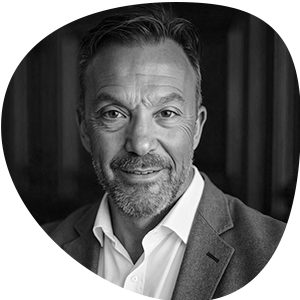
Trent Shepherd (Co-Chairperson)
Trent Shepherd is a policy and governance specialist with extensive experience in developing culturally appropriate frameworks for Aboriginal and Torres Strait Islander communities. He combines legal qualifications with practical experience across government, legal services, and community organisations to drive positive structural change.
In 2024, Trent joined the AIATSIS Research Ethics Committee as Co-Chairperson, bringing significant expertise in ethical research practices and Indigenous Data Sovereignty. He leads the committee in reviewing research projects involving Aboriginal and Torres Strait Islander communities, ensuring compliance with the AIATSIS Code of Ethics and the National Statement on Ethical Conduct in Human Research.
Currently, he serves as the Principal Implementation Officer for Closing the Gap Priority Reform Four at the Department of Primary Industry and Regional Development. In this role, Trent develops comprehensive policies and procedures for culturally appropriate data governance. He has previously held leadership positions at the National Justice Project, the Aboriginal Legal Service NSW/ACT, and the Federal Circuit Court of Australia, where he drafted Australia's first Specialist Indigenous List Policy and Procedure.
Trent holds a Bachelor of Laws and a Bachelor of Arts (with Distinction) from the University of Wollongong, as well as a Diploma in Legal Practice from the College of Law. He has completed the First Peoples Leading Impact Program. Recognised for his exceptional communication skills, he excels at building trusted relationships with diverse Aboriginal communities and government stakeholders.
His dedication to ethical research practices and Aboriginal self-determination guides his work in safeguarding and promoting ethical standards in Indigenous research while ensuring that projects have a positive impact on Aboriginal and Torres Strait Islander communities.
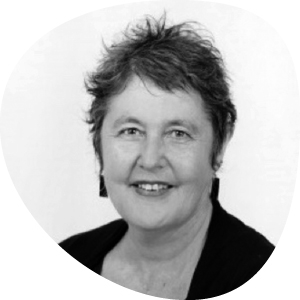
Dr Robyn Williams (Executive Member)
BA, RN, Grad DipEd, MPET, PhDRobyn is a non-Indigenous woman gratefully living on Larrakia land in Garramilla (Darwin). She has nursing and education qualifications, thirty plus years as an academic, and over forty years of experience of working with First Nations peoples, primarily in the NT but also nationally. Her experience and interests include cultural safety, effective communication, evaluation of community-based programs, ethics, and qualitative research.
In 2020, Robyn was awarded her PhD for her thesis on exploring preparation for health professionals to be culturally safe and effective practitioners in Indigenous primary health care settings (urban, rural, and remote. Over the last few years, Robyn has been engaged in various community-based projects as a qualitative research and evaluation consultant. These include evaluating the Banatjarl Strongbala Wimun Grup and associated programs, Katherine region, and evaluation of the Health Promotion Program, Pintubi Homelands and Health Service.
In addition to working on cultural safety modules, workshops, and frameworks with the NT ACCHO sector, and for RAHC, Robyn co-edited a textbook on cultural safety and diversity in health care (2021) and another on health professionals and Indigenous health (2022). She also facilitates a Qualitative Research Short Course (4 days) on an annual basis for the Menzies School of Health Research.
In 2023, Robyn developed a Cultural Safety Framework and Guidelines for Culturally Safe Placements for Faculty of Health, CDU students. From April 2024 to June 2025, Robyn worked in a part-time position as Quality and Governance Coordinator, Culturally-led Mental Health Support project, Jawoyn Association. From July 2025,Robyn has been engaged on a short term project as a part time curriculum developer for the Katherine West Health Board.
After finishing as Chair of the Menzies/NT Health Qualitative Research Ethics Sub-Committee at the end of 2024, Robyn remains an executive member of the AIATSIS Research Ethics Committee and in August 2024 commenced as Chair of the CDU Ethics Committee.
In November 2024, Robyn was appointed as an independent member of the Red Lily Health Board, West Arnhemland.
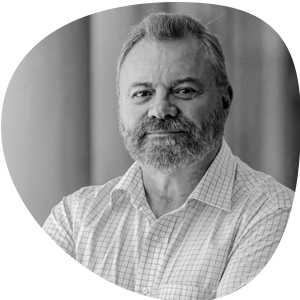
Professor Andrew Crowden (Executive Member)
Andrew Crowden is an Executive Member of the Australian Institute of Aboriginal and Torres Strait Islander Studies (AIATSIS) Research Ethics Committee (REC). Andrew is Honorary Professorial Fellow in the Department of Medical Biology at The University of Melbourne (UoM), Honorary Professor in Philosophy at the University of Queensland (UQ) and Adjunct Professor at the University of the Sunshine Coast (UniSC). He is Chairperson of the Walter and Eliza Hall Institute of Medical Research (WEHI) Human Research Ethics Committee (HREC), Chairperson of the UQ Ethics Advisory Group, Chairperson of UniSC HREC, the philosopher/bioethicist member of the CSIRO Australian Health Biobank Advisory Group, Stream Leader for Australian Association of Bioethics and Health Law (AABHL) Research and Innovation Stream and a Member of the Australasian Association of Philosophy (AAP) Philosophy in Community Committee (PiCC).
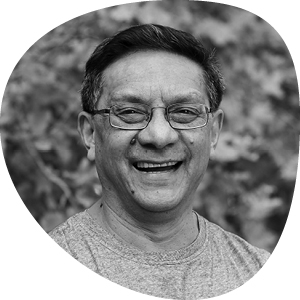
Associate Professor Alwin Chong
Alwin is a Wakamin man from Far North Queensland and is currently a Director of Arney Chong Consulting. He has over 35 years of research experience in various roles as Associate Professor at the Australian Centre for Child Protection (ACCP), Director for Positive Futures Research Collaboration, Acting Director of Yaitya Purruna Indigenous Health Unit (YPIHU), and Senior Research and Ethics Officer for the Aboriginal Health Council of South Australia. He is also a member of the NHMRC Australian Health Ethics Committee.
Alwin's areas of expertise closely align with his commitment to Indigenous health and child protection. These areas include alternative strategies for Aboriginal child protection, conducting research that tackles large societal issues such as smoking and gambling in Indigenous communities, and the perception around Fatherhood for young Indigenous men. Alwin joined the Research Ethics Committee in 2020 as a Researcher.
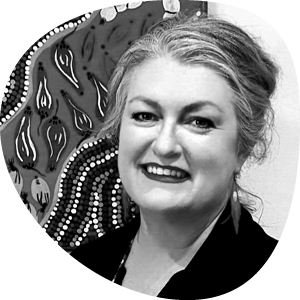
Dr Michelle Dickson
Associate Professor Michelle Dickson is a Darkinjung/Ngarigo (Aboriginal, New South Wales, Australia) academic in the Sydney School of Public Health, Faculty of Medicine and Health, The University of Sydney. She lives and works on Gadigal land in Sydney, Australia and commenced at the University of Sydney in 2010. Dr Dickson has worked in Aboriginal and Torres Strait Islander health and wellbeing service delivery, research, and health professions education for 27 years. She is Deputy Head of the Sydney School of Public Health and was the former Academic Program Director of the Graduate Diploma in Indigenous Health Promotion program for Aboriginal and Torres Strait Islander health professionals. In 2016 the Council of Council of Academic Public Health Institutions Australasia (CAPHIA) awarded her with recognition of her contribution to the Public Health profession. In 2021 the Public Health Association of Australia (PHAA) awarded her for her contribution to Aboriginal and Torres Strait Islander Public Health.
As Chief Investigator on several state, national and international research collaborations, Dr Dickson focuses on privileging Indigenous ways of knowing, being and doing in health and wellbeing service delivery, health professions education and capacity building to improve health and wellbeing outcomes for Aboriginal and Torres Strait Islander peoples. Committed to mentoring and supporting future leaders, Dr Dickson provides strategic and cultural support to students and colleagues in across government, non-government and community-controlled sectors.
Michelle joined the Research Ethics Committee in 2022 as a Researcher.
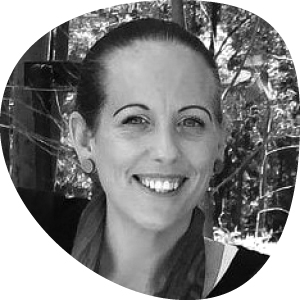
Tammy Small
Tammy Small (family name Gordon) is a Wiradjuri woman who grew up in Western Sydney on Dharug country and spent a lot of time with family on Murie lands in Condobolin, NSW. Tammy is currently the Manager of Projects, Indigenous Advancement at the University of Wollongong located on Dharawal Country. She has extensive experience in higher education settings where she has worked in various roles including Manager of Student Advancement, Indigenous Employment Coordinator, Academic Engagement, Tertiary Educator (Lecturer/tutorial teacher in Aboriginal Education and Contemporary Issues- core course for all Teaching students) and Project Officer for an Indigenous Pro-Vice Chancellor.
Tammy has a Bachelor of Teaching/Bachelor of Arts with a specialisation in Secondary Social Science Teaching awarded from the University of Newcastle. Prior to her time in the higher education sector, Tammy was a History teacher at Hunter School of the Performing Arts where additional to her teaching load she revitalised the existing Aboriginal Dance ensemble Millabah.
She joined the Research Ethics Committee in 2022 as a Researcher. Tammy feels that cultural revival is core business for Aboriginal and Torres Strait Islander peoples and that whilst we have come a long way over the past 234 the voices have changed but the issues remain the same.
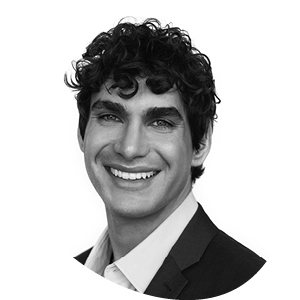
Jake Gordon
Jake Gordon is a proud Ngemba/Gamilaraay man originating from Brewarrina NSW, with his formative years spent on Ngunnawal and Awabakal Country. Jake is the Eldest Grandson of the late Stephen George Gordon ATSIC Commissioner. Jake is currently based in Sydney residing on Gadigal Country. Sharing similar aspirations to his Grandfather in relation to the betterment of Aboriginal people, Jake has worked in both Federal and State Governments in various portfolios to assist Aboriginal communities over the past twelve years. Jake is further recognised for his Aboriginal advocacy work stemming from an international modelling career. This includes Ambassador roles for high profile charity organisations such as Kidney Foundation and One Laptop Per Child. Jake has appeared on various news outlets advocating for social change in relation to how First Nations people are represented in mainstream media and advertising.
Jake has a Bachelor of Business (Human Resources, Digital Media & Communications) and a Master of Business Administration (Leadership); both from Charles Sturt University. Jake is currently undertaking his Doctor of Philosophy with the University of Technology Sydney with a key focus on cultural safety as it relates to First Nations peoples.
Jake joined the Research Ethics Committee in 2022.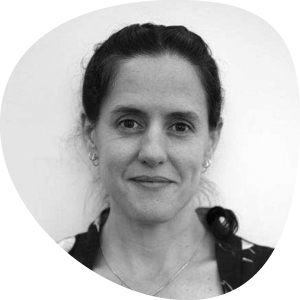
Dr Tracey Powis
Tracey is a pākehā (European descent, from Aotearoa/New Zealand) cis-woman who grew up in Australia and has spent a fair amount of her life going back and forth across the ditch for work and family reasons. She's worked with Aboriginal communities in a number of capacities, whether in research, community-outreach or therapeutic services. She's also a mother to two children, of pākehā & Aboriginal heritage respectively.
Currently Tracey works with Aboriginal and Torres Strait Islander young people and their families in Canberra, ACT.
Tracey joined the Research Ethics Committee in 2019 as a Practitioner. Tracey has tertiary qualifications in psychology and research and is genuinely surprised to realise that she's been working in this space for almost 15 years. She continues to learn from those who have gone before her, and from the children and young people in her life, who keep her accountable on a daily basis.
Natalie Clark Reynolds
Natalie joined the Research Ethics Committee in 2020 as a Layperson. She was born in Canada into a family who embedded in her an empathy and caring in all she undertakes. Natalie has a degree in Chemical Engineering and although her career begin in technical fields, she has migrated towards areas of ethics, health and education. She has been a Community Representative on Bellberry Limited Human Research Ethics Committees since 2009, has also worked as a Consumer Representative on her local health network and with CT:IQ on a project to improve recruitment of clinical trials in Australia. Natalie works part time as a student support officer in a primary school and spends much enjoyable time with her family.
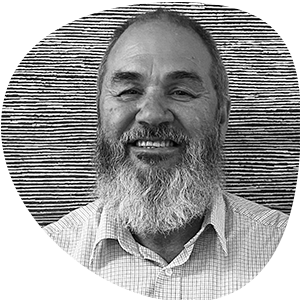
Lindsay Hardy
Lindsay Hardy is a Bidjara Gunggari Mhurdi from Southwest Queensland and is currently living and working on Darkinjung Country, Central Coast NSW, employed with the University of Newcastle as the Stakeholder Manager, his role focuses on creating partnerships with industry forming new pathways and opportunities for our Aboriginal and Torres Strait Islander students, connecting people and establishing networks to benefit community and our future generations.
He has decades of experience in roles involving NGO’s, government sectors, Indigenous employment, cultural consulting, senior policy and management, Indigenous research and community health, his journey has been genuinely imbedded in advocacy and leadership within Indigenous spaces.
His community involvement extends beyond his professional life where he holds various governance roles which include, Deputy Chair Elenore Duncan Aboriginal Medical Services, Regional Director Aboriginal Health and Medical Research Council (AHMRC). In addition, Lindsay is an active member of various community NGO’s, Gunggari Native Title Aboriginal Corporation (RNTBC), Local Aboriginal Land Council etc, which only strengthens his lifelong dedication in supporting our Aboriginal voices and developing networks that help our community and youth “Our Future Leaders”.
Lindsay joined the AIATSIS Research Ethics committee in 2024.
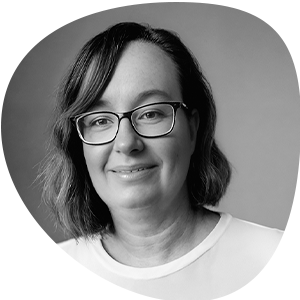
Shannon Kelly
Shannon Kelly is a proud Gamilaroi woman, born and raised on Awabakal Country. She is a public servant with over a decade of experience across government, Aboriginal community-controlled organisations, and the not-for-profit sector. Her work focuses on governance, Aboriginal-led decision-making, and cultural safety.
Shannon supports governance reform and capacity building in Aboriginal communities. She also serves on the ABC Advisory Council and is a mentor in the Suzy Miller Women’s Leadership Program.
She has completed the AICD’s Foundations of Directorship and is committed to ethical, respectful research that centres Aboriginal voices and protects Indigenous Cultural and Intellectual Property rights.
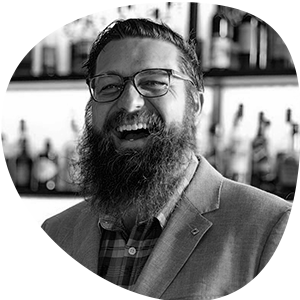
Adam Gowen
Adam is a Wiradjuri man who has cultural connections to Yuin Country, culture, and community. He is currently employed as the Centre Manager of Country Universities Centre Southern Shoalhaven in Ulladulla on the NSW South Coast, leading a small and dynamic team providing support to students engaged in Higher Education. He is also an accredited Minister of Religion (Pastor).
Adam volunteers widely including as a firefighter with the NSW Rural Fire Service (RFS). For his service in the Black Summer Bushfires of 2019/2020 he was awarded the National Emergency Medal and the NSW Premier’s Bushfire Emergency citation. He is a member of the Australian Institute of Company Directors (MAICD) and has governance experience in with not-for-profit organisations in the justice, education, and homelessness spaces.
Adam has a first-class honours degree in Indigenous studies (UOW) the thesis component of this degree focusses on issues of Indigenous identity, sovereignty, and settler colonialism. He also has a Graduate Certificate in theology from Indigenous perspectives (University of Divinity/NAIITS/Whitley College). He is a published academic researcher and a member of the Australian Institute for Aboriginal and Torres Strait Islander Studies (AITASIS) Research Ethics Committee (REC) since 2024. Adam is a sought-after speaker, panellist and presenter and has addressed international and national audiences at conferences, and guest lectures on a wide range of themes including leadership, relational connection, identity, theology, education, and community engagement.
Dr Lilon Bandler
Lilon is a GP at the Matthew Talbot Hostel Primary Healthcare Clinic and has worked in general practice for many years. She is a Board member for the Far West Local Health District (NSW Health) and chairs the Safety and Quality in Health Committee. She is a member of the Human Research Ethics Committee, at Macquarie University. She is a Board member for Leaders in Medical Education (LIME) Network, Ltd, and has long experience in medical education.
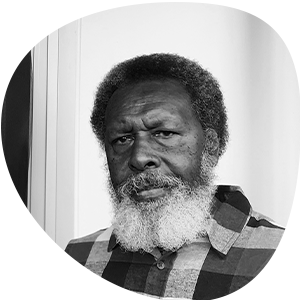
Dr John Doolah
John is a proud Torres Strait Islander Meriam-Samsep man of Meriam le and Erubam le heritage. After a 16-year career in the QLD and NSW railways he enrolled as a mature age student in tertiary studies at the University of Newcastle.
John graduated, with a diploma in Aboriginal Studies, a double degree, a Bachelor of Aboriginal Studies and a Bachelor of Applied Science (Consumer Science) and a Masters in Aboriginal Studies. He coordinated, lectured and developed courses in Aboriginal and Torres Strait Islander Studies at the University of Newcastle for 7 years.
After completing his postgraduate studies with a PhD (English) he is now at the University of Melbourne, Faculty of Education as a Lecturer in Indigenous Education. He is involved in teaching and research. He is a Ngarrngga Postdoctoral Fellow and is recently the ACESE First Nations Fellow 2025 recipient.
For 13 years John was a Joint Medical Program Multiple Skills Assessment Interviewer, interviewing students seeking entry to a medical degree. For 7 years he chaired a Special Entry Panel, interviewing Indigenous students’ university entry. He is a member of the University of Melbourne Indigenous Development Committee (IDC) “the strategic importance of the IDC and its purpose, is to progress the Faculty of Education (FoE) Indigenous Development Plan.” John joined the AIATSIS Research Ethics Committee in 2025 as a Pastoral Care representative.